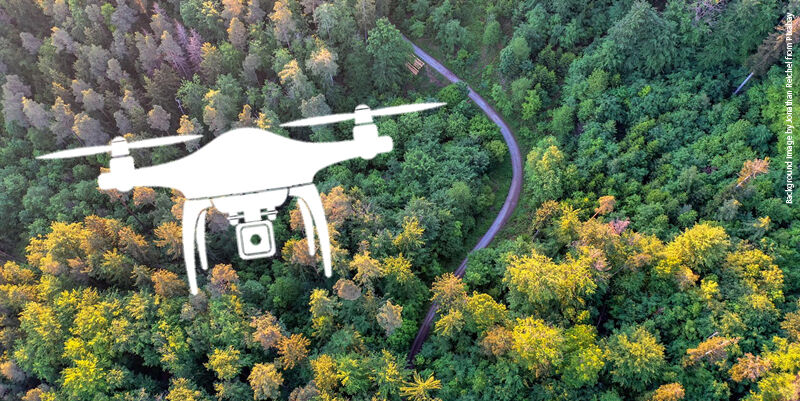The Government today announced plans to support economic growth by modernising UK intellectual property laws. Ministers have accepted the recommendations made in an independent review which estimate a potential benefit to the UK economy of up to £7.9 billion
The recommendations were made in May 2011 by Professor Ian Hargreaves in his report, - âDigital Opportunity: A review of intellectual property and growthâ. Modernising intellectual property law is a key action from the Governmentâs Plan for Growth, published in March alongside the Budget, which will help create the right conditions for businesses to invest, grow and create jobs.Announcing the Governmentâs response to the review, Business Secretary Vince Cable said: âThe Government is focused on boosting growth and the Hargreaves review highlighted the potential to grow the UK economy. By creating a more open intellectual property system it will allow innovative businesses to develop new products and services which will be able to compete fairly in the UKâs thriving markets for consumer equipment.âWe are accepting the recommendations and will now set about reforming the UKâs intellectual property systems. Opening up intellectual property laws can deliver real value to the UK economy as well as the creators and consumers.âThe Chancellor George Osborne said: âOur future depends on exploiting knowledge and ideas to their full potential and the Government is committed to build upon this countyâs great strength in intellectual property.\"As part of our Plan for Growth, the Governmentâs broad acceptance of the Hargreaves review will make it easier to use Intellectual Property to create value and growth in the economy and across our society, in ways that are fair to everyone.\"Among the recommendations that have been accepted are:⢠The UK should have a Digital Copyright Exchange; a digital market place where licences in copyright content can be readily bought and sold. The review predicted that a Digital Copyright Exchange could add up as much as £2 billion a year to the UK economy by 2020. A feasibility study will now begin to establish how such an exchange will look and work. The Government will announce arrangements for how this work will be driven forward later in the year. ⢠Copyright exceptions covering limited private copying should be introduced to realise growth opportunities. Thousands of people copy legitimately purchased content, such as a CD to a computer or portable device such as an IPod, assuming it is legal. This move will bring copyright law into line with the real world, and with consumersâ reasonable expectations.⢠Copyright exceptions to allow parody should also be introduced to benefit UK production companies and make it legal for performing artists, such as comedians, to parody someone elseâs work without seeking permission from the copyright holder. It would enable UK production companies to create programmes that could play to their creative strengths, and create a range of content for broadcasters.⢠The introduction of an exception to copyright for search and analysis techniques known as âtext and data miningâ. Currently research scientists such as medical researchers are being hampered from working on data because it is illegal under copyright law to do this without permission of copyright owners. The Wellcome Trust has said that 87 per cent of the material housed in the UKâs main medical research database is unavailable for legal text and data mining, that is despite the fact that the technology exists to carry out this analytical work.⢠Establishing licensing and clearance procedures for orphan works (material with unknown copyright owners). This would open up a range of works that are currently locked away in libraries and museums and unavailable for consumer or research purposes.⢠That evidence should drive future policy â The Government has strengthened the Intellectual Property Officeâs economics team and has begun a programme of research to highlight growth opportunities. One report has already shown that investments made by businesses in products and services that are protected by intellectual property rights (IPRs) are worth £65 billion a year.Alongside the Government response, a new intellectual property crime strategy and international strategy for intellectual property have been published.The crime strategy outlines how the Intellectual Property Office will continue to enforce IP crime issues domestically. Counterfeit goods often use other companyâs trade marks or infringe their copyright, which can lead to financial losses. The international strategy sets out the UKâs five year vision to get the international IP framework in the best possible shape to support innovation and growth. Patent backlogs cost the global economy up to £7.4 billion a year.Minister for Intellectual Property Baroness Wilcox said: âIntellectual property is a key UK export and global trade in IP licenses alone is worth more than £600 billion a year. UK businesses need to have confidence in the international IP framework so they are able to create and exploit value from their ideas.âThe Department for Culture Media and Sport (DCMS) has also laid out the next steps for implementing the mass notification system in the Digital Economy Act. This involves letters being sent to internet account holders when their internet connection has been identified as linked to unlawfully shared copyright material.The letters aim to educate people about copyright and point them toward legitimate content. They also seek to inform subscribers their internet connection may have been used by others to unlawfully share copyright material. For example parents may be unaware their children are using their internet connection to unlawfully share copyright material.The Government has decided to introduce a £20 fee for subscribers wishing to appeal detected instances of unlawful sharing of copyright material they have been notified about. The fee will be refunded if the appeal is successful.A report by Ofcom, which is published today, identifies a risk of the system being overwhelmed by vexatious appeals from people determined to disrupt the system. Government expects that a £20 fee should deter appeals without deterring genuine appeals.Ofcom was also asked to consider whether the site-blocking provisions in the Digital Economy Act would work in practice. The Act contains reserve powers to allow courts to order that websites dedicated to copyright infringement are blocked. The regulator concluded the provisions as they stand would not be effective and so the Government will not bring forward the Actâs site-blocking provisions at this time.Creative Industries Minister Ed Vaizey said:âWe need a copyright system fit for the digital age. Creating these new exceptions to copyright will enable innovators to develop new products and services.âBut it is essential that businesses have the right tools to protect their hard work and investment in the digital age.âThe UKâs creative industries are a key part of our economy but online copyright infringement poses a real threat to their continued success. âOur creative industries must be able to protect their products and the Digital Economy Act will help them do that.â1. The Government\'s response to Professor Hargreavesâ independent review is available at http://www.bis.gov.uk/news/topstories/2011/Aug/reforming-ip 2. An example of where an exception to copyright for search and analysis techniques known as âtext and data miningâ is an issue is in the research for malaria cures. A Thai based research unit wants to make 1,000 journals available offering potential insights into treating malaria today. Researchers would like to text mine them â copy the articles in order to run software seeking patterns that would assist their work. However, because many of the authors are unknown it is impossible to establish who owns the copyright to them. The papers remain unavailable to researchers. This appears out of proportion to any benefit the authors of the articles would be likely to want if they could be found.3. The Hargreaves report said that the introduction of exceptions to parody could have a positive impact on economic growth in the UK. He also suggests there will be a wider social and cultural benefit in terms of freedom of expression. Comedy is big business and video parody is becoming ever more popular. An example of homemade parody - Newport State of Mind (based upon Empire State of Mind) achieved great success on YouTube in 2010 but resulted in action by the rights holders to have it removed under UK copyright law.4. The full Government response, along with the IP International Approach and IP Crime Strategy are available on the IPO website www.ipo.gov.uk/ipresponse.5. âDigital Opportunity: A review of intellectual property and growthâ is available on the review website www.ipo.gov.uk/ipreview.6. The Intellectual Property Office (IPO) is within the Department for Business, Innovation, and Skills (BIS) and is responsible for the national framework of Intellectual Property rights, comprising patents, designs, trade marks and copyright.7. Its role is to help manage an IP system that encourages innovation and creativity, balances the needs of consumers and users, promotes strong and competitive markets and is the foundation of the knowledge-based economy.8. It operates in a national and an international environment and its work is governed by national and international law, including various international treaties relating to Intellectual Property to which the United Kingdom is a party.9. The Government has published a policy statement on the next steps of the Digital Economy Act at LINK to supplement the information in the Government response to the Hargreaves Review.10. Ofcomâs reports on the Digital Economy Act provisions on site-blocking and the appeals process can be found http://www.culture.gov.uk/publications/.11. For more information about the Digital Economy Act from DCMS please visit http://www.culture.gov.uk/publications/default.aspx 12. BIS\'s online newsroom contains the latest press notices, speeches, as well as video and images for download. It also features an up to date list of BIS press office contacts. See http://www.bis.gov.uk/newsroom for more information.
Subscribe to our newsletter
Stay updated on the latest technology, innovation product arrivals and exciting offers to your inbox.
Newsletter

